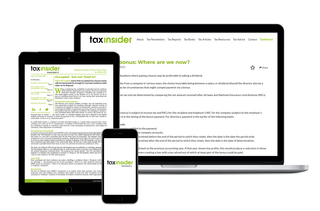 Mark McLaughlin looks at interest relief for landlords, and HMRC’s current view on additional funds borrowed against the value of residential lettings.
Mark McLaughlin looks at interest relief for landlords, and HMRC’s current view on additional funds borrowed against the value of residential lettings.
----------------------
This is a sample article from our property tax saving newsletter - Try Property Tax Insider today.
---------------------
It is difficult enough for landlords to navigate through complex tax legislation and pay the ‘right’ amount of tax without HM Revenue and Customs (HMRC) guidance apparently contradicting itself. But that seems to be the current position.
Remortgaging: Interest relief
For example, the tax legislation states that a deduction from rental profits is allowable for expenses incurred ‘wholly and exclusively’ for the purposes of the business. This short and general provision has resulted in uncertainty and case law disputes between taxpayers and HMRC over the years.
Interest relief can be given for finance costs (e.g., mortgage or overdraft interest) associated with property purchase, repair, or working capital, and this includes the cost of obtaining finance. In the case of loan interest relief, HMRC’s Business Income Manual states (at BIM45700):
“A proprietor of a business may withdraw the profits of the business and the capital they have introduced to the business, even though substitute funding then has to be provided by interest bearing loans. The interest payable on the loans is an allowable deduction. This is on the basis that the purpose of the additional borrowing is to provide working capital for the business.”
An illustration in HMRC’s guidance (Example 2) features an individual (Mr A) who lets out his flat while working away. The flat was then worth £375,000 (original cost £125,000) and the outstanding mortgage was £80,000. He increased his mortgage by £125,000 (to £205,000) and withdrew the £125,000 to use elsewhere.
The flat’s value (£375,000) exceeded the mortgage (£205,000). HMRC states: “Although he has withdrawn capital from the business, the interest on the mortgage loan is allowable in full because it is funding the transfer of the property to the business at its open market value at the time the business started. The capital account is not overdrawn.”
On that basis, Mr A could have used the additional mortgage of £125,000 for non-business purposes, but still received tax relief for the mortgage interest against his rental profits on the basis that this scenario comes within the definition of ‘wholly and exclusively’ (i.e., the property’s value exceeds the total amount borrowed).
Not so fast!
However, separate HMRC guidance ‘Work out your rental income when you let property’ (tinyurl.com/HMRC-Rental-Income-Letting) states (under ‘Increasing your Mortgage’):
“If you increase your mortgage loan on your buy-to-let property you may be able to treat interest on the additional loan as a revenue expense, or get relief against income tax as long as the additional loan is wholly and exclusively for the purposes of the letting business” (emphasis added).
This seems to indicate that in Example 2 at BIM45700, Mr A would not obtain tax relief on the additional mortgage advance of £125,000, which he withdrew from his rental property business for non-business purposes.
Indeed, there have been reports within the tax profession of cases where HMRC has sought to disallow interest where the loan financed a withdrawal of capital, even though the landlord’s capital account had not become withdrawn.
Practical tip
Neither BIM45700 nor HMRC’s guidance carries the force of law, so a case is likely to reach the tax tribunal before too long. In the meantime, it would seem prudent to ensure that any additional borrowing is used in the property business and is not withdrawn.



